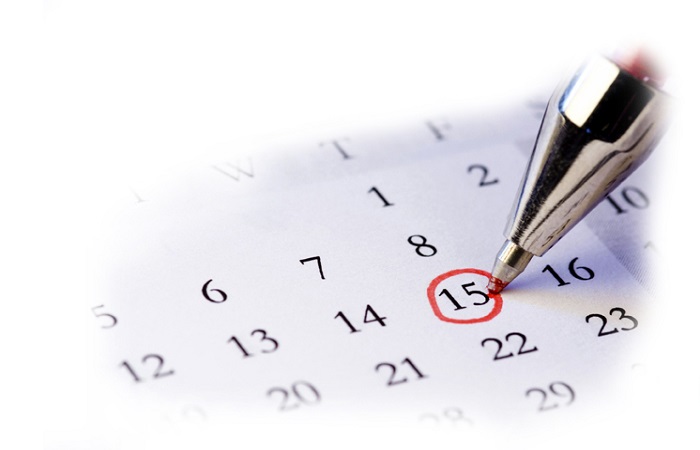Before and during menstruation, women experience hormonal changes that affect the expected behavior of their bodies. Even these changes can affect our mood and how we cope with our day-to-day life.
At FastlyHeal, we approach this issue from the perspective of symptoms, specifically hypotension. Why does my blood pressure drop when my period comes? Does menstruation have something to do with lowering blood pressure? Keep reading the following FastlyHealarticle, and we will explain it to you.
Table of Contents
Understanding the menstrual cycle
The menstrual cycle is the reproductive process of women. It begins to count from the first day of menstruation until after approximately five days. A time when the rule disappears. Even from that day 1 to 13, the follicular or pre-ovulation phase begins.
In this phase, hormones begin to prepare the uterus for the fertilization process. They help thicken the endometrium walls for the ovum’s adhesion, which will occur on day 14. The ovary releases the ovum that will be fixed in the uterus for 24 hours, waiting for the sperm.
Between days 15 or 16 to 28, the unfertilized ovum will wither until it is expelled with the rule. Menstruation is the bleeding after the uterus clears at the end of the menstrual cycle. In general, the process lasts 28 days, although, in some women, it varies by more or fewer days.
Beyond the drop in blood pressure that we will explain later, during menstruation, women may experience :
- Abdominal and hip pain
- Headaches
- Joint swelling
- Breast enlargement and tenderness
- Humor changes
- Decreased blood pressure

Low blood pressure and menstruation
Hypotension is the term for low blood pressure. It is usual for pressure to drop under certain conditions to some extent. This is done by the body to regulate the pumping of blood.
For example, low blood pressure can prevent a stroke or heart attack. But on the other hand, sustained hypotension can lead to a stroke or heart attack. That is why it is essential to regulate blood pressure.
Generally, hypotension is due to venous return to the heart. Blood circulation is obstructed in the legs, and the seat is forced to increase its rate. This generates a contraction of the muscle, minimizing the capacity of the blood vessels.
The most common symptoms of hypotension are:
- Dizziness and even fainting
- Sweaty hands
- Headache
- Nausea and vomiting
- Dizziness
- Confusion or disorientation
Why do I get dizzy when my period comes
The reasons that can lead to hypotension or low blood pressure are varied. One of them may be menstruation in the case of women since the entire circulatory system is compromised with the death of the rule. Additionally, hormonal changes can also influence blood pressure.
Minimal dizziness or decompensation may be a sign of low blood pressure due to the period. Usually, this symptom can go unnoticed by the patient. However, it is a sign that the heart has doubled its rate to level blood flow to the body.
What to do if my blood pressure drops
In any case of hypotension, the treatment should be the same. The first thing is to take a seat or lie down to avoid a fall. Although pressure drops do not always lead to fainting, there may be a loss of body balance.
The most common methods of treating low blood pressure are:
- Drink sugar water
- Placing cold water compresses on the forehead
- Eat or suck on candy
- If possible, lie down and put your legs up
To avoid a pressure drop when your period comes, you can:
- Drink plenty of water and soups or broths, which keep the body hydrated during the menstruation period.
- Increase the consumption of fruits or vegetables that contain sugars. Also, the number of times a day. For example, include mid-morning and mid-afternoon snacks.
- Eat breakfast: under no circumstances do activities without having previously eaten. A banana is an excellent option when you are in a rush to start the day.
- Include carbohydrates in the first meal. Pancakes, yogurts, cereals, slices of bread will give the body the energy to stay on its feet throughout the day.
- Avoid rigid diets: during the menstruation period, it is not recommended to undergo very demanding diets.
- Rest: sleep is of the utmost importance during the days of your period. It allows the body to recover and take control of the circulatory system.

Low blood pressure in women
Low blood pressure or hypotension is a more common condition in women than men. And this is mainly due to our hormonal system. As well as the demands of our body to adapt it to the fertilization process.
Although hypotension is a condition that warrants observation, it is beneficial during pregnancy since it contributes to the dilation of the arteries, which improves blood flow to the placenta.
On some occasions, the drop in blood pressure is also associated with anemia or diabetes. A medical check-up is essential when hypotension becomes frequent, and bleeding continues for more than seven days during the menstrual period.
This article is merely informative. At FastlyHeal .com, we do not have the power to prescribe medical treatments or make any diagnosis. We invite you to see a doctor in the case of presenting any condition or discomfort.
If you want to read more articles similar to Why does my period lower my blood pressure? We recommend that you enter our category of Female reproductive system.

I am a Surgeon with a diploma in comprehensive ultrasound and surgical care residency, an area I am specializing in. During the exercise of my profession, I have realized the need for patients to know the diseases they suffer, and I can tell you that a large part of their complications is due to a lack of information. Being a health web writer allows me to transmit my experience, without borders, to all those readers eager for knowledge, educate them in the prevention of diseases and promote a healthy lifestyle.

